You all know who I’m talking about. The friend on Facebook with a line of 10 posts in 20 seconds, the Twitter account who never sleeps and Retweets 50 times/minute and the over-sharer with TMI posts on her page 24/7.
Overposting is defined in the Urban Dictionary as the following:
- When an internet user excessively posts or comments on message boards, classified ad sites, or social media, often times with similar or repetitive content.
- Exceeding a socially acceptable amount of posts, comments, or responses, even if the necessary post limit is not quantifiable.
- Beating a subject to death online.
Are you being tortured by an overposter? What about a company who overposts? What does this look like and how do we stop it?
Ken Woods wrote a blog about Social Media Etiquette called: Social Media Etiquette Allows No Vaguebooking, Oversharing, Overposting or Duck Faces.
I never even knew there was a term called VagueBooking (It means posting intentionally vague postings for attention and sympathy) let alone Duck Faces (pouty, sexy expression with pooched lips?). His blog talks about individual posters, however, the rules may also be applied to businesses.
On our Facebook news feeds, Business pages typically know the drill. One or two quality posts per day is all you need to keep your page in front of those who like it. Otherwise, drowning out your audience with 4-5 posts or more/day will tune them out and turn them off. Perhaps you may even lose some likes. And we all know how precious those likes, shares and comments can become!
Besides overposting on Facebook, some Twitter users tend to have a knack for retweeting 30+ tweets in a row. Talk about having to scroll down a few feet to read my favorite tweets. Additionally, how about the bogus Twitter accounts who follow your feed? Blocking and reporting these users seem to somehow be a waste of time.
On all social media accounts, I am a big proponent of organic likes. Buying likes and followers tends to diminish the quality of a small business account as several of these accounts are typically spammy in nature and not really interested in your product or service. I advise my small business clients to grow followers and likes organically until it maxes out. From there, we may discuss some paid advertising options moving forward.
Being aware of the annoyance overposting may cause is the best defense against it. Try to understand the parameters of each social media platform so you can give your business a profile deemed professional and worthy of follows and likes.
For further small business social media advice, contact cheryl@highkeyimpact.com.

